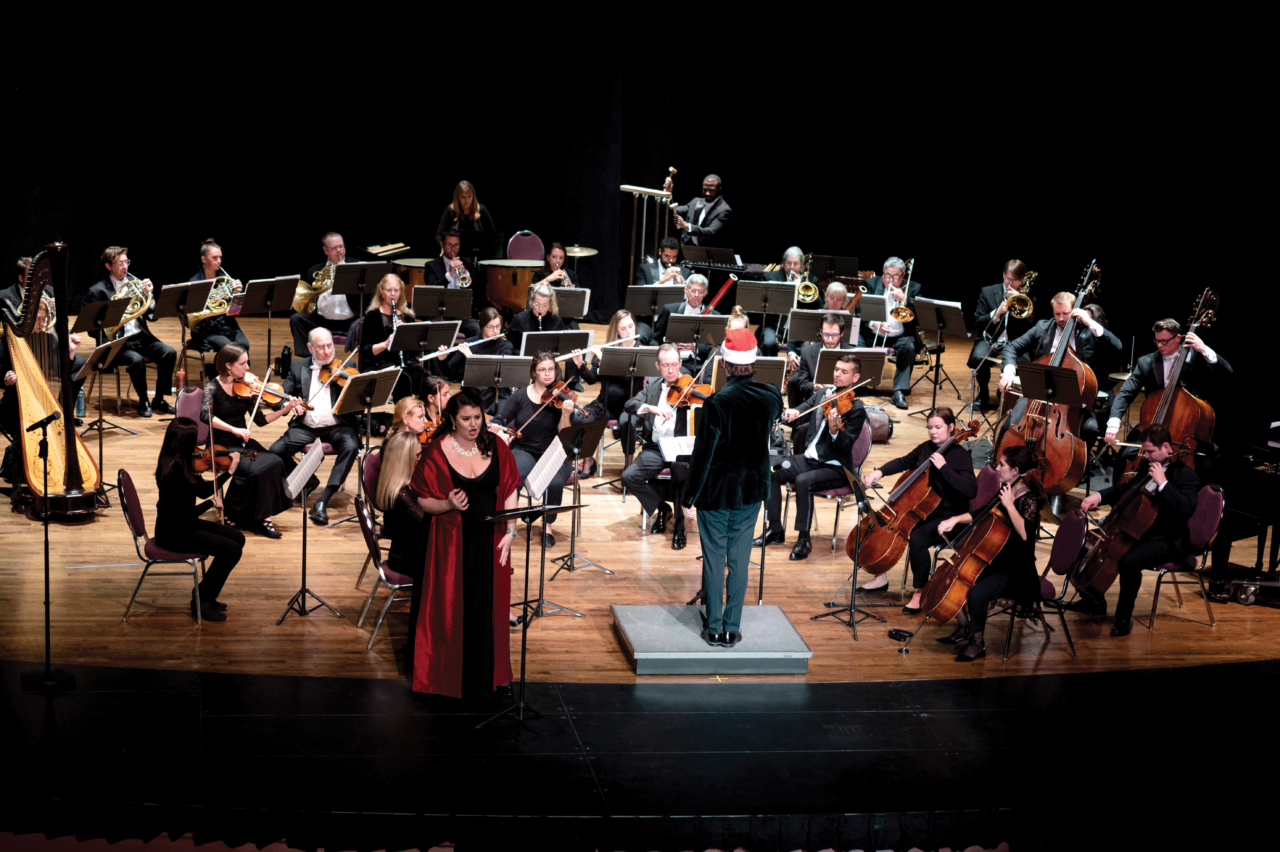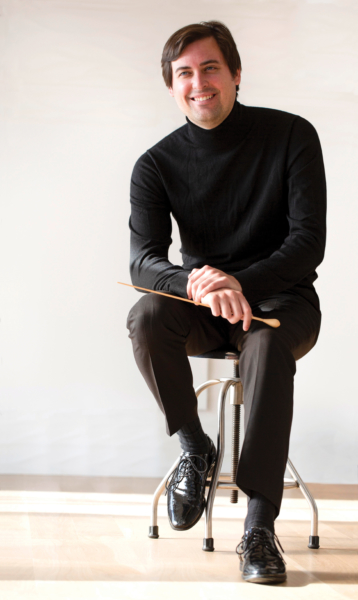Conductor Michael Repper brings his experience, talent and enthusiasm to direct the Mid-Atlantic Symphony Orchestra and unite people with music
Interview by Muphen R. Whitney
LEADING BY EXAMPLE Internationally recognized conductor, pianist and recording artist Michael Repper was recently appointed music director and conductor of the Mid-Atlantic SymphonyOrchestra — just the third maestro to lead the MSO in its 25-year history.

Before we talk specifically about conducting, tell me about your background as a musician, including your education as a pianist and conductor.
I’ve been a musician since I was 4.My grandmother, who was a pianist, suggested to my parents that I should take piano lessons because she noticed I was interested in music when it was playing. I took piano lessons, eventually started taking violin lessons, became interested in conducting when I was very, very young, about 8, and was very fortunate to have people in my life who believed in me from a very young age. I was a resident ofBaltimore for many years because my studies took me through PeabodyConservatory, where I earned my doctorate in conducting. This feels like a homecoming to me, and I’m very honored and proud to be joining the organization.
Michael, there must have come a point when you had to decide if the majority of your talent and effort would go into conducting or into being a full-time pianist. How did that come about, and how did you make that decision?
Having to decide between such and such is a common thing for artists, unfortunately, because there’s not time to do everything. I loved conducting more, so the decision was easy for me. I found myself much more at home as a conductor than I was as a pianist. I really am pursuing a career as a symphonic conductor and enjoying it and very glad I made that decision.

POWER OF THE MIND Conductor Michael Repper strongly believes his positive attitude and openness to explore new ideas result in energetic performances enjoyed most by audiences.
Currently, you are the music director and conductor of five orchestras— located in the Midwest, Virginia,New York, Peru, South America and now Maryland. How do you keep up with all of that, and is there a thread among those different orchestras and the music they present that has led you to be involved specifically with them?
Well, I’ve been extremely fortunate to be involved with orchestras all over the world. I think that being able to meet different people, people who come from different cultures, has definitely influenced my feelings about what performance is. I would say that my mission to try to connect people is what unifies all of these different ensembles in my mind.In terms of the work that I’m trying to do, I am the music director of the New York Youth Symphony atCarnegie Hall and Symphony PortEl Peru, which is the symphony forPeru. These are music programs for younger people, but I’m also working with the Mid-Atlantic Symphony,Ashland Symphony and NorthernNeck Orchestra, in Virginia.
These are professional adult ensembles. It’s definitely different work, but the goal fundamentally is the same. I’m able to bring lessons that I’ve learned from these different places — and again, it’s about connecting people and bringing people together.
When it comes to the music, how do you see your job as a conductor? Is it strictly to present the composer’s vision? Is it to present your vision of the composer’s music, or is there something in between or something totally different?
The conductor sits sometimes in the middle of 60 or 70 different interpretations of the same music. I would say that the right attitude fora conductor is to truly be a leader who is part of the team and a team player, one who has their ears open to possibly other interpretations you may not have thought of. I’m also aware that I’m 31. There are many musicians I work with who are older and have more experience. That I may have some things to learn from them doesn’t diminish me or my abilities as a conductor. I actually think that attitude increases my abilities as a conductor because the best way to conduct is to have open ears. It’s about finding that balance between being a leader and also being somebody who is open to hearing ideas. In the end, I find that that attitude results in the most energetic performances, the ones that the audience will enjoy the most.
Do you remember the very first time you took your place on a podium and raised your baton? What were you thinking, and what piece were you about to conduct?
I was 8. I was in Australia. I was at a concert for kids. I was handed the baton and told to get in front of this orchestra and conduct the second movement ofHides SurpriseSymphony, so I had no idea what I was doing, of course, but the orchestra went and played. The surprise of that piece was just as much a surprise to me as it was to the audience, and there was something so visceral in that moment that I said to myself: I’ve got to figure out how to study this.
What is the best thing about being a conductor, besides, of course, the idolatry and adoration? Also, what is the one thing you’d never change or could ever give up?
It’s funny you mention that. I actually am hoping that the culture of classical music actually moves away from the idolization or the lionization or what not of conductors. It’s somethingI’ve tried to stay away from. There’s something indescribable whenI’m in the middle of conducting a performance. I feel almost out of my body. You really get into the middle of the music, and you sort of feel like nothing can really touch you. I hope that the experience of music always stays that way for me. CS
Editor’s note: For more of Muphen’s interview with Michael Repper, and to listen to additional MSO topics, visit MidAtlanticSymphony.org/Podcast.
